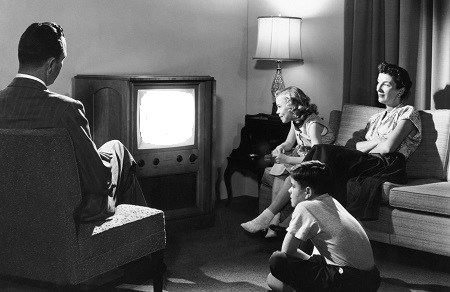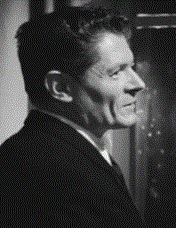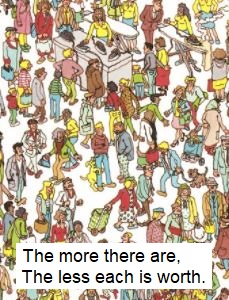I like being alienated. Don't you?
An appalling thought (My uterus, my enemy)
I imagine being pregnant. Your (my) body invaded by an enemy within: a selfish, greedy ever expanding monster: a foetus. Maybe even giving me preeclampsia, varicose veins, sagging breasts, stretch marks, cellulite and god knows what other troubles. For God's sake, somebody, anybody! Amy Coney Barrett! Take this burden from me! Take this goddamned thing away! But some women like it? What are they getting out of it? I don't want to explode and spatter amneotic fluid all over the walls. I'm glad I wasn't around when I must have been a baby; who would want to be one of those slimy repulsive blobs of still only partly congealed – what do that call it? "baby fat"? Fat! Yuk! Blessed event, indeed! Maybe for non-combatants? No wonder Zeus gave birth to Athena out of his head without all this amniotic fluid and disgusting afterbirth. Kids aren't so bad once they are toilet trained, and especially after they can say with understanding: "Cogito ergo sum."
Alienation (La dolce vita)
My (BMcC[18-11-46-503]) whole life has been shaped by one simple thing: I did not like the so-called "preparatory" school to which I was subjected between my 2nd iteration of the first half of 7th grade and the end of 12th grade. I did not know anything I might want, but I was daily reminded of something I did not want: THEM or to be like THEM. There were occasional exceptions of things that were, although not appealing to me, at least not so bad. All they did was subject me to examinations on pedagogical pedagogy that meant nothing to me, so all the time I was having to succeed at things I cared nothing about, under the ever-present undefined threat of: Or else!. THEM were thick adult males. Again, I had no idea what anything I might want might be like, but put a negation sign in front of anything THEM were or that THEM liked and that was something. Fear and aversion made me want to get away. I could not do that in space or time, bu tI could be: alienated. When, by whatever routes, I eventually came across books and then movies that were not like THEM, I I started to make some progress. It was not much, but it was things that were not THEM THEM. One of my favorite parts of school was a secondary staircase in the upper school building, which was not often used by anybody. The hall was not too bad except when students or faculty members were in it. THEM THEM THEM. Being alienated was the best thing I could do. What a less-than-life.
When I learned a little bit about sex, no thanks to THEM, then I really had a donkey to in the tail on, something specific: they were depriving me specifically of sex. THEM THEM THEM. I didn't know much what sex was, except that they were depriving me of it and it was something definable that they were depriving me of. So hwo could "foreign films" not appeal to me, among other reasos because the prople in them were not being subjected to involuntary unending involuntary chastity: I was stuck in a world without women, and, a fortiori, without attractive ones. My teachers' bodies were repulsive (like my parents, but that's another story). Alienation was the first good thing in my life: I could be alienated. And, of course, that meant: alienated form THEM. THEM were one big "in loco parentis" when I learned that latin phrase, which meant being sexually repressed by proxy. THEM. They hurt me. Nobody helped me. I got the message, and, as I would later learn, my given name: "Bradford" is a close synonym for doormat ("broad river ford"). Of course THEM probably did not know this. THEM didn't know much of anything except that they did what the did. Again, as I would later think: What frequency tuning fork would resonate with each of their their skulls?
This is maybe all "old hat" but surely it is always worth repeating so long as all of it is applicable, as in our present Reaganomic economic and now Wokie social surround.
I think there are at least 3 forms of what technically can be called: "alienation". One is good, one bad. One iswhat it is. The good one is the objectivation of a skilled craftsman's work of mind and hand in am honorable product of his craft. You cannot be a potter without alienating your labor into pieces of pottery. Hunter gatherers probably alienate far less of themselves in this sense, but what do they have except for their living bodies, which can be good so far as it goes, but it does not endure. Making love is not generally making works of art. I think semen-otic pro-creation is mainly meaningful for those who, for whatever reasons, cannot semiotically create anything. (And living bodies can make war as well as for make love.) So the potter fires his kiln and if he is lucky he has some alienated but also durable labor as a result. God, after he created the world, found it was good. So too, if he is lucky, the potter.
Then, generally the potter has to sell all or most of his production. I think even this can be good, if he sells to persons who will care well for the pieces they buy and if, in exchange, he gets things that will be of value to him. Like, maybe, more good clay to make more pots, or bottles of good wine for his dinners, or a good mechanic fixing his car, etc. Banknotes and EFT's are promissory notes, because they have only exchange value, not use value. Few, especially contemporary United States base metal coins, would be worth displaying as works of art, would they?
The bad kind of alienation is when a person's life is stolen from them, say, if the potter works as an employee of a company of which he is not a co-owner and gets only a wage for part of the value of his labor and the remainder of the value goes to the owners (extraction of surplus value). this can be obfuscated in various ways, although often the rapists do not bother to do this. If the potter does not own his own potter's wheel, the thief can charge him an exorbitant rent on a wheel he, the exploiter, "owns", i.e., has control over the use of, "free enterprise" enforced by state police power. This letter kind of alienation, like ornament in Adolf Loos's essay, is crime, practiced by degenerates, who generally are not even ashamed of themselves for what they do.
The third kind of alienation is reflective distance from one's immediate experienced social surround. "Hey, you! Come on and join today's mass march for today's Good Cause! Everybody's gotta be there!" "No, thank you, Sir. I'll wait here for Godot, if you don't mind, please." "What's wrong with you?"
Steiner
I think here about George Steiner, who I expect never was never much troubled with contemplating suicide. Also the character Steiner in Federico Fellini's film, "La Dolce Vita". Steiner was a highly cultured person, who, one day, puts bullets through his two children's and his own head. To quote from what NYT OpEd writer Maurine Dowd described as the morbid Peggy Lee ballad that (POTUS №45) Donald J, Trump loves: "Is that all there is?" Why does Fellini's Steiner commit homocide/suicide?
"...Steiner admits he is torn between the security that a materialistic life affords and his longing for a more spiritual albeit insecure way of life. Steiner philosophizes about the need for love in the world and fears what his children may grow up to face one day.... Credit for the creation of Steiner, the intellectual who commits suicide after shooting his two children, goes to co-screenwriter Tullio Pinelli. Having gone to school with Italian novelist Cesare Pavese, Pinelli had closely followed the writer's career and felt that his over-intellectualism had become emotionally sterile, leading to his suicide in a Turin hotel in 1950. This idea of a 'burnt-out existence' is carried over to Steiner in the party episode where the sounds of nature are not to be experienced first-hand by himself and his guests but in the virtual world of tape recordings." (Wikipedia)
Aside: "Virtual world": Isn't that what highly schooled albeit less cultured technical workers (e.g.: so-called "Computer Science" Ph.D.'s) are getting off on in 2020? Don't they have enough emotional life – yet – to think about whether they should kill themselves? Four Horseman University (The Grim Reaper is the school's President) accepts students of all ages and all GPA's, even those over 30 years old who didn't make the grade in their previous schooling, and all levels, from elementary school dropouts to post-graduate fellows. Their class size quota is never filled. Every student gets a full scholarship with room and board. But there's a catch: It's "real".
Steiner's murder of his children seems, then, to derive from his feeling about the life situation of his time, and consequently to be part of the suicide. The idea of an intrinsic human dignity which would demand that Steiner only kill himself and not his children (existentialism: each pe[e]rson deserves his or her own opportunity to choose for themself) may be missing, or maybe Steiner does not believe such dignity is possible in the given life situation, so that the murders are honestly mercy killings (Sophocles: "Best of all never to have been born; second best to have seen the light and to go back swiftly whence one came."; "It's over, Debbie" (JAMA, April 8, 1988); Sancho Panza's "There is no pain to which death does not bring an end"; etc.).
The key here may be that intellect must not become detached from life (the tape recordings of sounds of nature). Contrast: François Rabelais. Steiner could open the window. If there are no longer birds outside, he could reflectively thematize that, and perhaps purchase a villa for weekending in the countryside, or relocate there altogether, with his books, and try to assimilate, presuming that the locals were not immutably anti-intellectual on principle. There are many towns in Italy with rich popular and Renaissance culture. Steiner needed to get out of Milan. (For myself, I think I get long well fairly with tradespersons whom I can respect in contrast to white-collar Smiling faces that tell lies.)
What use is culture if it cannot motivate persons to want to wake up each new morning? I'm thinking that rationality itself must be rooted in emotion (having a motivation...), else how could anybody do it (Husserlean intentionality)? A person can only do anything (other than autonomic activity which the person does not really themself do and which they would still "do" if profoundly asleep or unconscious for some other reasons), if they have some reason, and that reason must have some "motivation", i.e., emotion, to power it. So we need to reflect on the roots of rationality, and that sounds to me similar to how I think scientists need to think about their practice of doing science as the root of scientific theory.
Such reflection is, of course, recursive, ultimately going down to a ground that is beyond thought and speech, but which can be talked and thought toward, perhaps metaphorically like observing the radiation emitted by an astronomical black hole. The black hole is itself not observable, but the radiation emitted by stuff interacting at/near its boundary is observable. Radical despair is not thinkable, since thinking requires motivation – accomplishment of radical despair entails unconsciousness. On the other hand, a person can commit suicide – my point here is that they must have a reason for doing it, and that is something which can be reflected on.
"To be or not to be?" is an act of asking a question; to think about this (i.e.: to think that one is asking a question, etc.) is to up-level from first-order question asking to meta-reflection on questioning in general and the present original first-order question in particular. "I understand this, but my pain is unbearable for me." (cf.: JAMA, loc. cit.) "If you remain sure of that, Sir/Madam, you will go for it. I am here for you if I can help in any way. I'm not pushing Mr. Socrates's propaganda that living is a sickness and death is the cure, either."
Isn't it healthful and a breath of fresh air to be alienated from a social surround that's not helpful, i.e.: any social surround which is not both always supportive and never intrusive? Noli me tangere. bmcc.edd@gmail.com

What to make of people that are not alienated?
Let's parse the question: We do not ask what about peer interlocutors, like we ask about stuff we want to dispose of: Paper recycling? Plastic recycling? Or into the compacter? We are talking here about interpersonal interactions which are not peer-with-peer reflective + self-reflective thoughtful open-ended discourse, but about living human beings [entities] in our surrounding world which we have to cope with their behaviors which can cause us trouble, pain and suffering. Make: We don't make anything of the persons we respect and love or who have power over us like our boss, just: employees, children and other subordinate creatures we shape and make shape up. And what are we talking about? Human beings that do not appear to have a critical distance from their daily metabolizing but just are lived by their social conditioning and surrounding conditions of life.
Tell them to enlist to go fight a war somewhere for "their country", or that they should send their loved ones to do that, and they do it. Tell them that they should get their hair cut just because everybody should be haircutted obviously, and they do it. Tell them they want to live in a suburban tract house and have a mort-gage and a lawn to mow and they do it. Tell them to have children and they do it. Tell thtem to THINK, and maybe they will just look to make sure their pants are not unzipped God forbid!
When I was in perp school, the words "conform" and "conformist" made me cringe. Yuk! I think they are no longer current dictionary words in the English language because that's what left-leaning progressives (politically correct people....) like to be (and they are not ashamed of being "politically correct", i.e.: being conformists? Baaa!)?
 Welcome
Welcome




